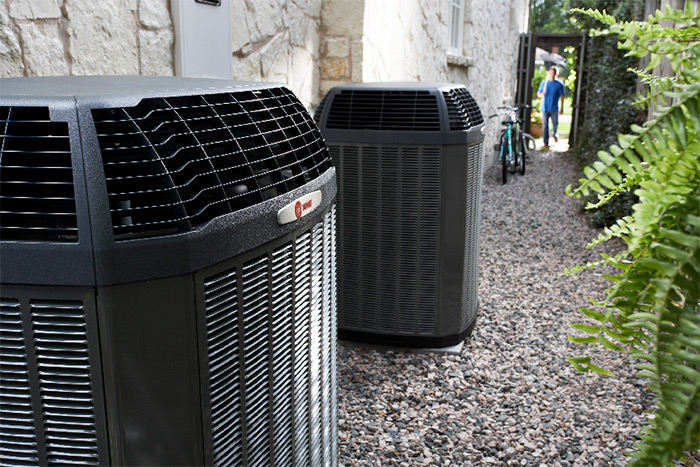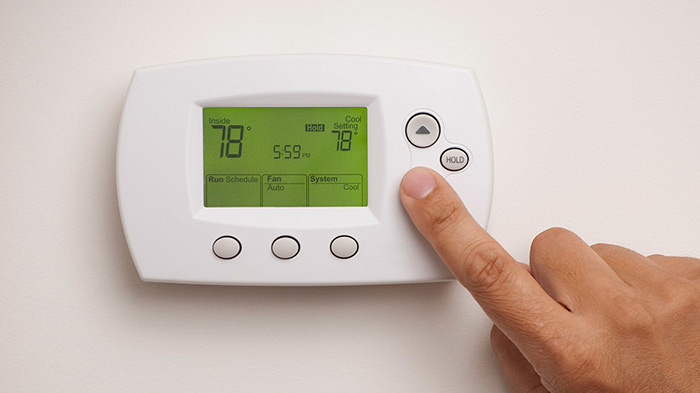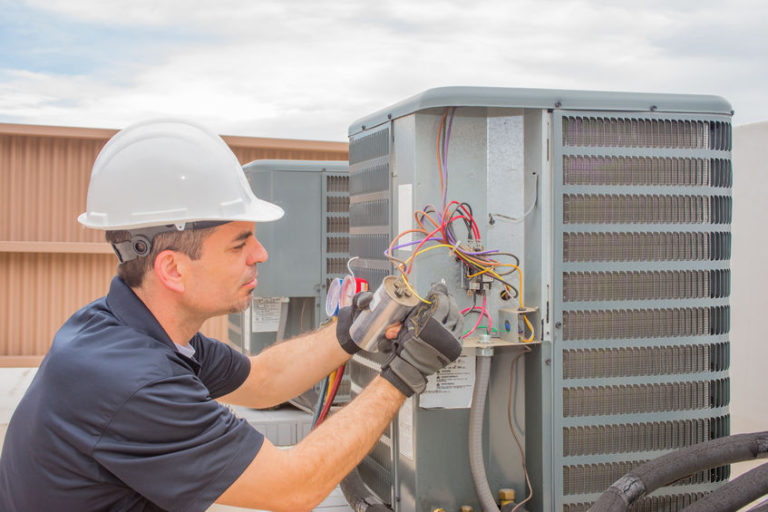An HVAC system is a piece of equipment that cools your home in the hot summer months, but it also maintains indoor air quality. Accurate AC installation plays a crucial role in the system’s peak performance.
It is critical to maintain bi-annual HVAC or air conditioning system maintenance to improve indoor air quality, optimize humidity levels, reduce mechanical wear and tear, decrease energy consumption, and increase its overall lifespan.
Can Air Conditioning System Control Humidity?
Humidity refers to moisture content measurement in the indoor air. If your home is too humid, condensation can build on solid structures and objects. High humidity levels can also lead to condensation of the evaporator coils, causing the AC system to work harder and consume more energy.

Research shows that higher humidity levels in indoor spaces are challenging to control. An air conditioning system removes moisture from the air and dehumidifies the indoor space to maintain optimal air quality. However, when you hire a professional HVAC contractor to install the humidifier, the air conditioning system will further enhance the humidity control process.
Although modern air conditioning systems can regulate humidity, you may also need a dehumidifier to enhance the process. An HVAC or air conditioning system has an evaporator coil that condenses moisture from the air and immediately removes it to make the indoor space less humid.
How Do An Air Conditioning System Control Humidity Levels?
Research shows that modern air conditioning systems can work as dehumidifiers. The AC system condenses water vapors to liquid form and drains the condensate into your house’s drainage system.
An average-size air conditioner produces 9-10 gallons of condensate per day. Besides, it draws hot or warm air from your indoor space and passes it over the evaporator coils. The refrigerant in the cold metal pipes absorbs the heat from the indoor air to reduce moisture levels, a process known as condensation.
When the refrigerant absorbs warm air, it produces condensation. The pan collects the condensation and drains it away. However, you need to optimize your AC settings to streamline the process by hiring a professional HVAC contractor.
Otherwise, humidity can cause heat exhaustion, leading to discomfort and severe health conditions. High moisture levels in your home can cause mold and mildew growth. It also provides favorable habitat to microorganisms, including bacteria and viruses.
Moreover, higher humidity levels mean more energy consumption by your AC system. If you want to install a new AC system, make sure you consult a professional HVAC contractor. Our experienced technicians can help you choose the right AC size for your home.
If the AC system is too large, it will cause short cycling, stopping the compressor from running for a sufficient amount of time. As a result, your AC system won’t dehumidify the indoor space. On the other hand, if you install a small-sized air conditioning system, it won’t keep your home comfortable or maintain indoor air quality throughout the hot summer season.
Does a Dehumidifier Make your AC more Efficient?
According to the Environmental Protection Agency (EPA), humidity gets intense in the hot summer season, especially in the coastal areas. When humidity or moisture levels increase, it becomes difficult to bear hot temperatures.
Higher humidity levels mean more water vapors in the indoor air. Less evaporation is directly proportional to increased temperature in your indoor space, making your home smell musty, feel muggy, and damage your home’s structures.
On the other hand, a high-quality dehumidifier installed by a professional HVAC technician can eliminate moisture problems and improve indoor air quality. A standard dehumidifier product has four parts, compressor coils, a fan, a re-heater, and a reservoir.
The fan processes the air in the indoor space, and the refrigerant cools down the compressor. Cooling coils can collect humidity from the indoor air using the condensation process. The reservoir then stores the extra moisture and eliminates moisture from the air.
Final Words
Proper AC installation is of the utmost importance if you want to get the most out of your system. If your AC system is not properly installed, it won’t function accurately, leading to reduced airflow and increased humidity levels in your home. Remember, air condition installation, repair, and maintenance are not DIY tasks and require a professional HVAC technician’s attention.
It is challenging to survive hot summer days and nights without an accurately installed air conditioning system. Therefore, hire a professional technician to install the AC system or re-calibrate the settings to ensure your home has optimal humidity levels. Contact us today for quality, reliable, and cost-effective air conditioning system installation services.



